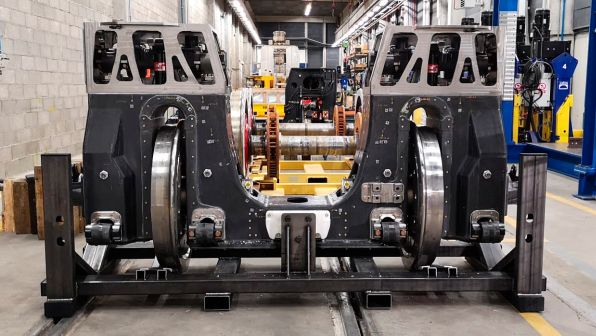TALGO has turned to new materials for manufacturing the wheelset frames for its Avril high-speed trains, replacing steel with carbon fibre reinforced polymer to cut component mass by 50% with no loss of structural integrity.
The Spanish rolling stock manufacturer says that the use of the composite material to reduce overall empty train weight will improve energy consumption and has the potential to increase the passenger capacity of each train.
The frames that hold the independently rotating Talgo wheelsets on Avril are currently made from welded steel plates, and both the shape of these frames and the need to maintain weld strength provide little opportunity to reduce component weight.
The manufacturer says replacing steel with composites produces a significant saving in weight while having no impact on other structural requirements. The new composite material is also fully compliant with the most stringent fire smoke toxicity standards in the rail sector, Talgo says.
Talgo has so far completed full scale testing of the composite frames to European standard CSN EN 13749 covering the structural requirements of bogie frames. This has involved static and fatigue tests exceeding 10 million cycles, with no significant damage reported after inspection.
The next steps will see the composite wheelset frame tested on the track, operating under real conditions in order to achieve final acceptance.
The European Union has supported the development through its Shift2Rail initiative.
Talgo says that composites could also be used to reduce component weight on inter-city and commuter vehicles, potentially increasing passenger capacity, simplifying assembly processes, and reducing energy consumption as well as track wear.
Composites could also be used to make other primary structural components of a railway vehicle, the manufacturer says.

